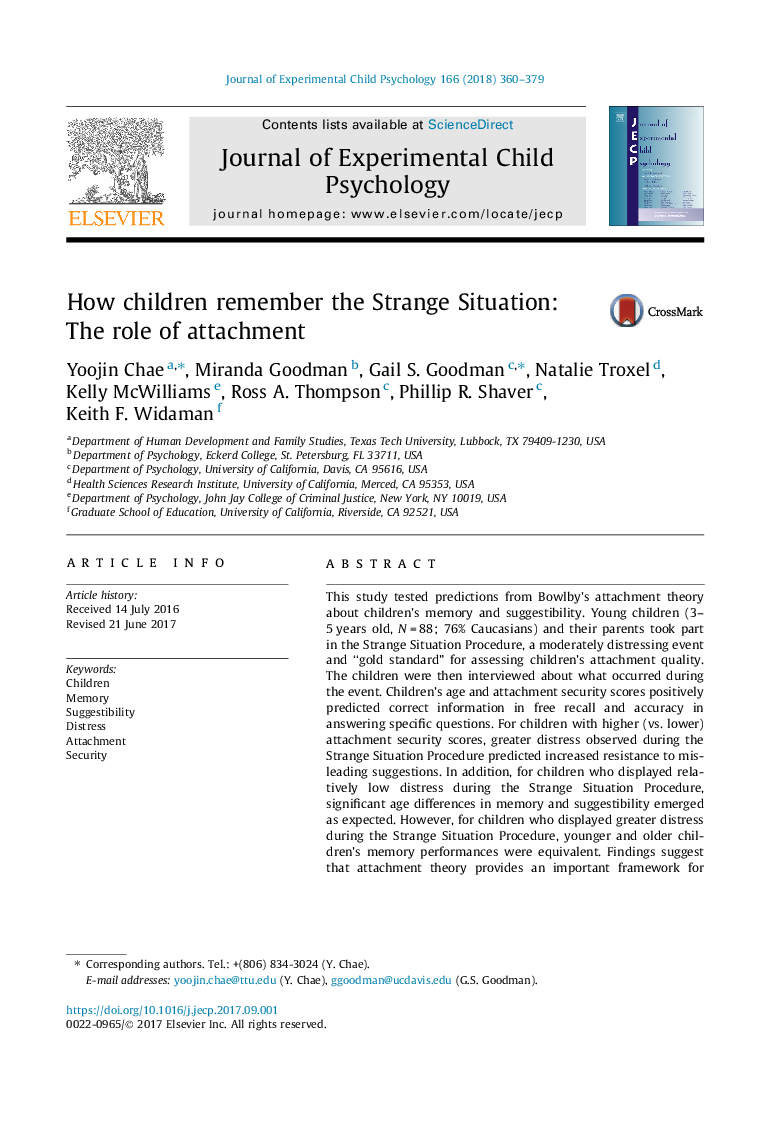| Article ID | Journal | Published Year | Pages | File Type |
|---|---|---|---|---|
| 5039872 | Journal of Experimental Child Psychology | 2018 | 20 Pages |
â¢Attachment security predicted recall and specific question accuracy about the Strange Situation.â¢Young children showing high Strange-Situation distress were as accurate as older ones.â¢Attachment theory provides a framework for understanding facets of memory development.
This study tested predictions from Bowlby's attachment theory about children's memory and suggestibility. Young children (3-5Â years old, NÂ =Â 88; 76% Caucasians) and their parents took part in the Strange Situation Procedure, a moderately distressing event and “gold standard” for assessing children's attachment quality. The children were then interviewed about what occurred during the event. Children's age and attachment security scores positively predicted correct information in free recall and accuracy in answering specific questions. For children with higher (vs. lower) attachment security scores, greater distress observed during the Strange Situation Procedure predicted increased resistance to misleading suggestions. In addition, for children who displayed relatively low distress during the Strange Situation Procedure, significant age differences in memory and suggestibility emerged as expected. However, for children who displayed greater distress during the Strange Situation Procedure, younger and older children's memory performances were equivalent. Findings suggest that attachment theory provides an important framework for understanding facets of memory development with respect to attachment-related information and that distress may alter assumed age patterns in memory development.
